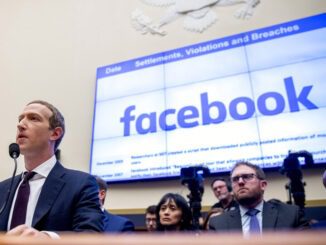
I read with interest Donald Bryson’s critique of NCInnovation, published by the John Locke Foundation, a think tank that Bryson leads. NCInnovation was funded by the state legislature last year to provide grants to researchers at UNC System universities working on applied research projects that have commercial promise.
Bryson argues that NCInnovation is “a corporate welfare program,” but he bases his criticism on a flawed understanding of the role of American universities and research. At bottom, Bryson objects to government funding of university research, which is an untenable position. Allow me to explain.
I am sure Bryson’s beliefs are sincere. As I understand, he has spent years working at an established think tank that analyzes all manner of public policy proposals. He offers a compelling defense of free market principles that resonates with me.
But Bryson does not, to my knowledge, have any particular awareness of university research or the relationship between universities and industry. I have spent my entire career in that space.
If Bryson understood that dynamic, he would see NCInnovation for what it is: A doubling down on the American model for innovation that is the basis for our country’s technological dominance. University research is a foundation of private sector growth, not a hindrance to it. Continued American success requires continuing what has worked for nearly a century: turning to American campuses to incubate discoveries that will have real-world applications.
Presidents from both parties have said as much. As just one example of many, the White House in August 2020 described the interplay between public research funding, universities and industry as “the uniquely American free-market approach to technological advancement,” noting that it advances discovery and “promote(s) job creation and workforce development.”
While foreign competitors entrench and subsidize state-controlled industries — usually flouting norms for pollution and labor practices at the same time — we must not let up on the American innovation model, anchored by robust university R&D.
There is much to say about Bryson’s critiques, but I will focus on two arguments that are central to his case.
First, Bryson argues against government funding for applied research generally. He writes: “This type of funding may pick winners and losers in the innovation landscape, potentially directing resources towards projects that align with government priorities rather than those driven by genuine market demand or private sector investment.”
This argument is folly insofar as it applies to most critical new technologies, for without public research funding at universities, there will be no “winners” — only losers. This gets to the heart of Bryson’s misunderstanding: Applied research happens at American universities because it largely would not happen otherwise. Early- to mid-stage R&D is expensive, risky and likely to fail.
That is why existing companies invest in mature technologies, many of which emerged from the university R&D process. Alternatively, new companies emerge to disrupt the marketplace with mature technologies, often incubated at universities. This isn’t true of every discovery, of course, but it is true of most American innovations that have been critical to our economy since World War II.
Second, Bryson argues that relationships between universities and industry constitute corporate welfare. He writes:
“According to NCI’s Frequently Asked Questions, ‘Company formation isn’t the only important output — licensing new technologies to existing companies matters, too.’ In other words, existing corporations will also benefit from the taxpayer-funded applied research from public universities that benefited from NCI. It does not take a mental leap to understand that this is taxpayers subsidizing businesses.”
This is a basic misunderstanding of the relationship between universities and industry. First, it is an intrinsic good for universities to study complex problems — society benefits from increasing knowledge. Second, universities are not charities that somehow gift their discoveries to select companies. Universities earn substantial revenue from discoveries born on their campuses and commercialized by the private sector, and universities rightly seek to maximize that revenue. This university-industry dynamic has been so central to American innovation for so long that Congress formalized a framework for it in law 50 years ago.
Anyone visiting NC State’s Centennial Campus will see the extent and depth of beneficial university-to-industry relationships. We need to make these relationships even stronger, not weaken them by overturning decades of well-established practices that have led to America’s technological might.
Most university research leads to papers about esoteric topics that may never have value in our daily lives. Within reason, this is the nature of academia, and presumably it elevates society in an intangible way. But I believe that at least some university research should yield actual, tangible discoveries that impact the real world now. In their mission to educate students and elevate our collective knowledge base, why not motivate universities to work on problems that make the world a better place?
Tom Darden is founder and CEO of Cherokee, which has raised more than $2.2 billion and invested in acquisition, cleanup, development and sale of approximately 550 environmentally contaminated real estate assets in the U.S., Europe and Canada. Darden holds degrees from UNC Chapel Hill and Yale University, and he began his career at Bain & Company.



